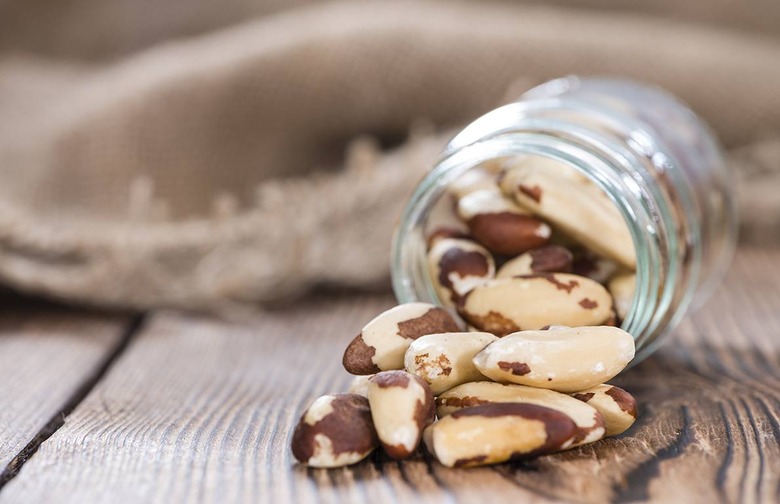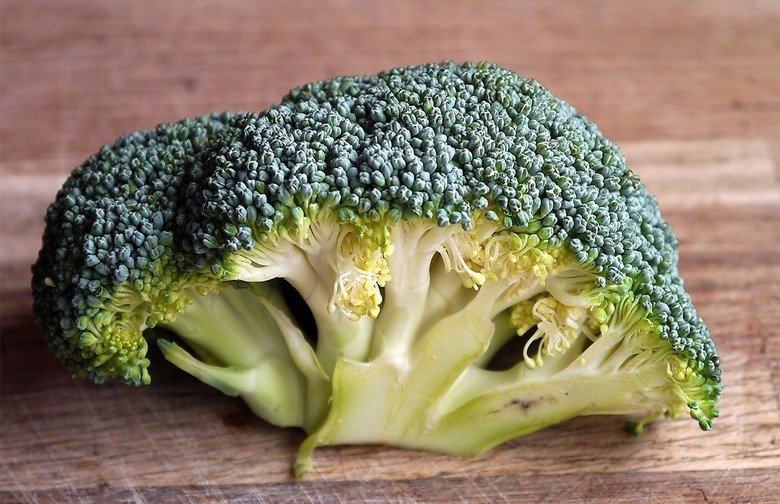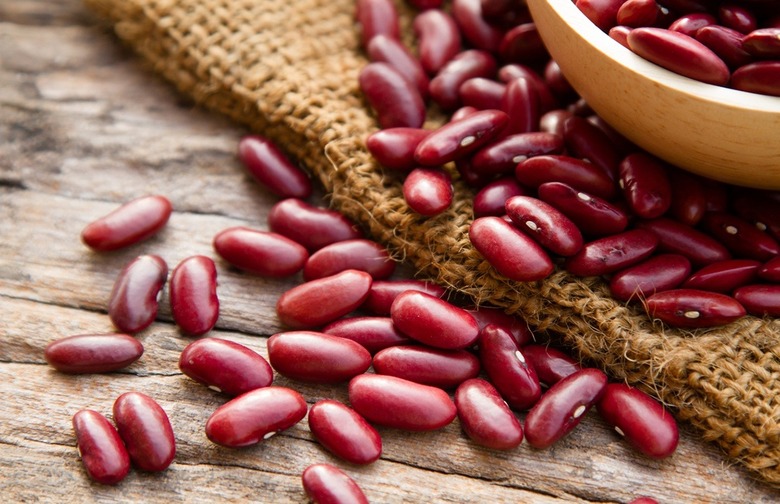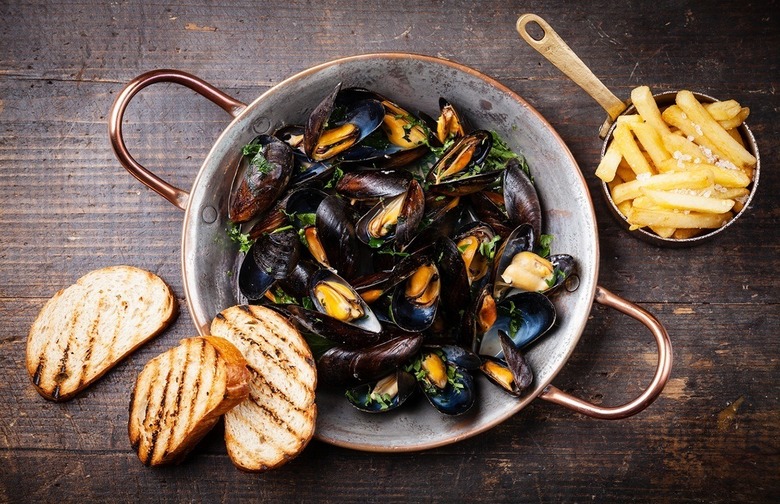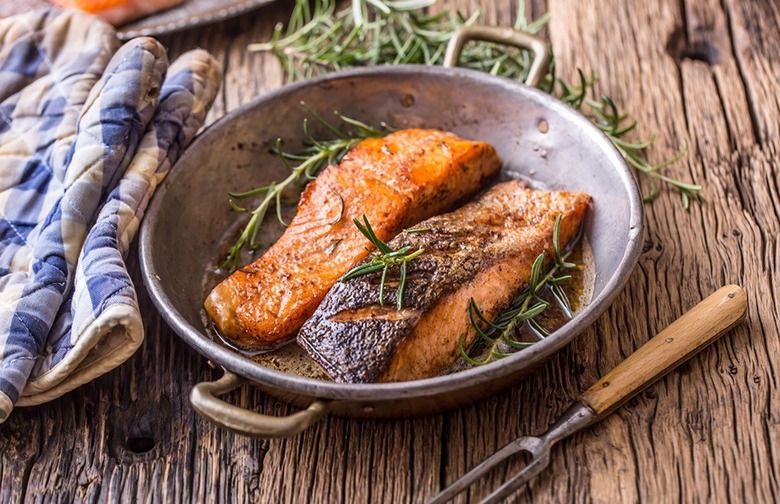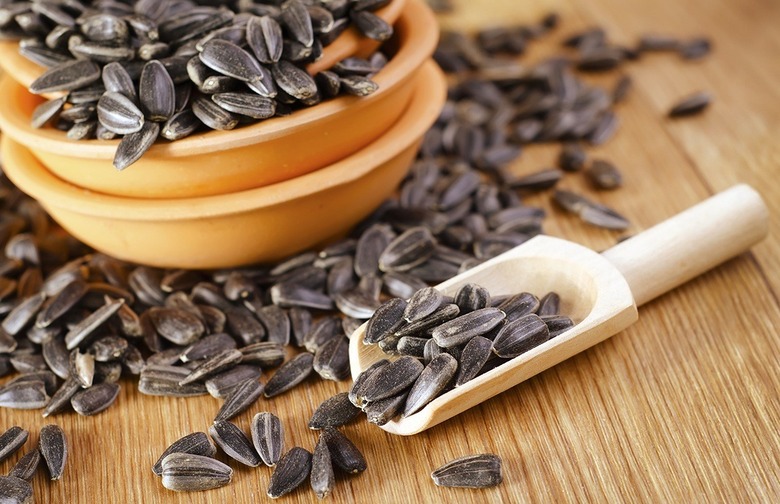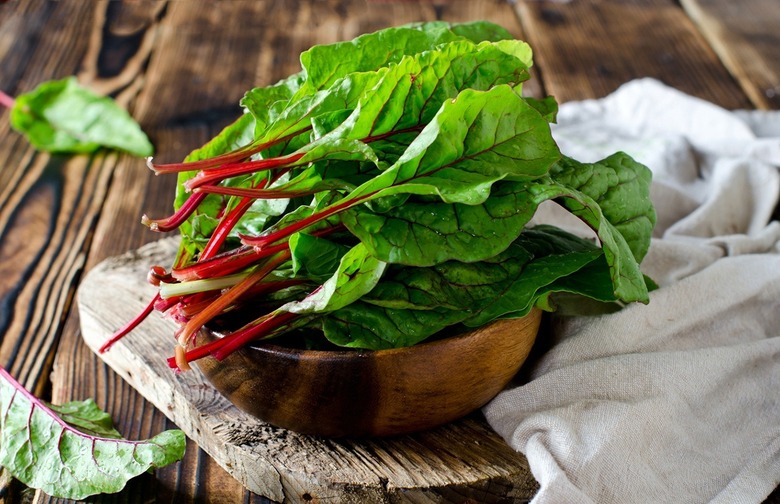10 Foods That Can Help Fight Anxiety And Depression Slideshow
Low levels of vitamin B12 and folate are common in patients suffering from depression, and studies show that a lack of these essential nutrients can also inhibit the effectiveness of antidepressants. Getting the proper amount of folic acid and vitamin B12 is crucial for proper neurological function, and one cup of cooked asparagus (around 10 spears) offers 50 percent of your daily requirement. Get some asparagus into your diet by making this velvety asparagus-pea soup.
Brazil Nuts
Brazil nuts have the highest concentration of the trace mineral selenium; eating just four grams will provide more than 100 percent of the recommended daily intake. Several studies and literature reviews provide evidence that supplementing a diet with extra selenium can help improve mood, and that people who lack this essential nutrient are more likely to be depressed. Proteins such as yellowfin tuna, halibut, sardines, and grass-fed beef also contain high quantities of selenium.
Broccoli
The University of Maryland Medical Center claims that 90 percent of Americans don't get enough chromium in their daily diet. A half cup of broccoli provides 11 micrograms of chromium, almost 50 percent of the recommended daily intake. This trace mineral works directly with mood regulators in the brain, and it aids in managing levels of mood-boosting neurotransmitters like serotonin, norepinephrine, and melatonin. Broccoli is delicious when it's simply roasted or grilled, or paired with cauliflower in a creamy casserole.
Chicken
Turkey is famous (or infamous) for its supposedly sleep-inducing tryptophan content, but chicken actually contains just as much per ounce. Tryptophan is an amino acid that is essential in the manufacturing of serotonin, also known as the happiness hormone. One study tracked the behavior of adults who self-described as "quarrelsome"; after supplementing their diets with tryptophan, they reported being significantly more agreeable. Whether it's chicken cacciatore, chicken bulgogi, or chicken Wellington, get some of this lean, tryptophan-rich protein into your diet.
Kidney Beans
A steaming pot of chili is a comfort that fills the soul and the tummy, especially when it's made with kidney beans. What sets kidney beans apart from other legumes is their folate content, with one cup of cooked beans providing 58 percent of the daily recommended value. Studies dating back to the 1960s show that patients with depression often exhibit a folate deficiency. If the weather is getting a little warm for chili, try kidney beans in this national dish of Portugal.
Mussels
A heaping bowl of mussels, steamed in an aromatic sauce of white wine and garlic, is a perfect way to tantalize your taste buds while relieving some of that seasonal depression. Mussels contain a high level of vitamin B-12, which has been found to positively affect mood and other brain functions. Along with vitamin B12, mussels are rich in zinc as well as long-chain fatty acids, which can improve brain function and reduce inflammation.
Portabello Mushrooms
Chilly mornings and overcast skies affect our natural intake of vitamin D, a nutrient especially important for alleviating depression as well as managing calcium in the blood, bones, and gut. Fortunately, sunlight is not the only source of vitamin D; it can also be consumed inside at the dinner table. Portabello mushroom farmers expose their crops to additional lighting, which boosts the vitamin D content by almost 3,000 percent. Increasing vitamin D intake has been used as an easy and cost-effective way to lessen the effects of depression. Here are 10 other foods that are full of vitamin D.
Salmon
Incorporating salmon, with its omega-3 fatty acids, into your breakfast routine can help brighten up those gloomy mornings. Studies show that a lack of omega-3 fatty acids can contribute to mood disorders and increased feelings of depression. Other sources of omega-3 fatty acids that can easily be added to breakfast dishes include flaxseed and walnuts. Add some smoked salmon or lox on to a morning bagel, or if you can't incorporate salmon into breakfast, try any one of these simple one-pan salmon dinners.
Sunflower Seeds
Even the name sounds cheery. Within sunflower seeds are two important mood regulating nutrients: magnesium and folate. A deficiency in magnesium can result in feelings of fatigue and nervousness, while a dearth of folate leads to irritability, depression, and insomnia. A quarter cup of sunflower seeds provides the body with 28 percent of the daily recommended intake of magnesium and 20 percent of the recommended amount of folate. Use sunflower seeds in trail mix, salads, or in a tasty sunflower seed brittle.
Swiss Chard
Swiss chard contains magnesium, an essential mineral for neurological health that is most often found in seafood and organic meat. Magnesium is not prolific in the American diet because of our overreliance on refined carbohydrates that have their minerals stripped away. A deficiency in this mineral, however, can lead to a number of different mental health-related symptoms such as anxiety, irritability, confusion, and sleeplessness.

